Albert Einstein is quoted to have said, The world is too dangerous to live in—not because of the people who do evil, but because of the people who let it happen.”
The month of April is Genocide awareness month. It’s also the month the Jews remember the Holocaust. The Holocaust has been described as the state-sponsored, systematic persecution and mass murder of European Jews and other groups carried out by Nazi Germany and its allies between 1933 and 1945.
Richard Von Weizsaecker the President of Germany made this thought provoking statement:
The Jewish nation remembers and will always remember. We seek reconciliation. Precisely for this reason we must understand that there can be no reconciliation without remembrance. The experience of million fold death is part the very being of every Jew in the world, not only because people cannot forget such atrocities, but also because remembrance is part of the Jewish faith.
Remembering the past always helps us to understand the present. And to make the most of the present, we’ve got to try to use the knowledge learned from the past to create a better future. That is why the Bible speaks in the language of remembering. God kept on reminding the Jews to remember what happened. What their ancestors taught them so that they could teach it to their children and eventually to the whole world.
What happened to Jews in Nazi Germany still provides compelling historical lessons for the church today and for the future of all who value justice, truth, and the value of human life.
A famous Holocaust survivor Primo Levi is quoted to have said,
In Hitler’s Germany a particular code was widespread: Those who knew did not talk; those who did not know did not ask questions; those who did ask questions received no answers.
Here are some questions that are worth pondering and reflecting on as Christians:
- Where was the Church during the Holocaust?
- What is the responsibility of the Church when the state legalizes sin, either through the courts or Parliament?
- How should the church respond if the state adopts unjust policies?
- Is the Church spiritually alert enough to face the crushing power and influence of the state?
- What should we have done in face of such evil?
We should not be critical of the church in Germany, because these and so many questions don’t have easy answers. Yet these questions are just as relevant today as there were back then. One of the most important lessons from dark period is that many Christians in Germany justified their allegiance to the state through a belief that “their obligation to God was spiritual; their duty to the state was political, yet the Bible teaches that all issues are spiritual—the moral issues are also the political issues. If the state perverts its God-given authority, it can no longer be honored.
The German census of May 1939 indicates that 54 percent of Germans considered themselves Protestant and 40 percent considered themselves Catholic, with only 3.5 percent claiming to neo-pagan “believers in God,” and 1.5 percent unbelievers. This census came more than six years into the Hitler era.
It has been said that centuries of proselytization, attacks on Judaism, and other anti-Semitic violence also contributed to the Holocaust. Replacement theology was also another factor that contributed to the Holocaust. Most of the Church Fathers” taught a “replacement theology” that the Church is the new Israel of God and that God had totally finished with the Jews. Merril Bolender, in his book When the Cross Became a Sword, writes:
The early Church fathers did not literally interpret the Scriptures; they often allegorized and spiritualized large amounts of Scriptural texts, with strange results. They also failed to consult the historical and cultural Hebraic context of passages as they attempted to rightly divide the Word of Truth….. When the allegorical method of interpretation is used, it denies the literal meaning of the text. Then you can make the text mean anything you want to mean.
Yes, it’s true that Replacement Theology and other factors contributed to the brutal extermination of millions of Jews and others they considered undesirables. But the spirit of Nazism was much more than killing Jews. It was because men had forgotten God, His commandments, His laws and absolute authority, and the Church forgot to preach the whole truth of the gospel message.
Dr Erwin Lutzer, in his book, When a Nation Forgets God, points out that when God is separated from government, judgment follows:
Christians thought that if they left Hitler alone, he would leave them alone. But they soon found out that it wasn’t possible. The church witnessed to the saving grace of Christ but believed that the church’s mission was only to preach Christ…..Pietism, with its emphasis on personal devotion to Christ, was used to inject spiritual life into the mainstream Lutheran church. But by insisting that their faith was private and should not be brought into the political sphere, pietism had scant influence in stemming the Nazi tide.
The majority of the church sat in congregations all around the Western world praising the Lord’s name while completely disinterested in the fate of Jewish people or not prepared to identify with them because of the possible consequences. In fact, part of the church joined in the persecutions. Here is an eye witness account of how some members of the church responded to the Nazi regime:
I lived in Germany during the Nazi Holocaust. I considered myself a Christian. We heard stories of what were happening to the Jews, but we tried to distance ourselves from it because, what could anyone do to stop it? A rail road track ran behind our small church and each Sunday morning we could hear the whistle in the distance and then the wheels coming over the tracks. We became disturbed when we heard the cries coming from the train as it passed by. We realized that it was carrying Jews like cattle in the cars!
Week after week the whistle would blow. We dreaded to hear the sound of those wheels because we knew that we would hear the cries of the Jews en route to a death camp. Their screams tormented us. We knew the time the train was coming and when we heard the whistle blow we began singing hymns. By the time the train came past our church we were singing at the top of our voices. If we heard the screams, we sang more loudly and soon we heard them no more. Years have passed and no one talks about it anymore. But I still hear that train whistle in my sleep. God forgive me; forgive all of us who called ourselves Christians yet did nothing to intervene.
The dealing with the guilt and the enormous scope of the crimes of the Nazis to the Jews is still very hard for the church to grasp. But remember there was a big price to pay: Interrogation, punishment, arrest, solitary confinement in concentration camps, and the death of some church leaders in these camps were consequences that had to be taken into consideration.
Dietrich Bonhoeffer, Martin Niemoller & The Confessing Church
But in spite of all this there were many, and there will always be a remnant that loves and blesses the Jewish people, even when it is neither popular nor safe. Hundreds of pastors of Germany during the Third Reich refused to take the oath of loyalty to Hitler. Dietrich Bonheoffer and others who spoke out against the state’s abuse of power found themselves imprisoned and persecuted for “Abuse of Pulpit.”
It estimated that 800 pastors were arrested and imprisoned for refusing the Nazification of their churches. They believed that the German church had ceased to be the church of Jesus Christ, and therefore they must break away and form a new church which could be called the Confessing Church because it proclaimed the gospel of Jesus Christ.
Their efforts resulted in chaos within the church because some leaders in the church thought if they compromised on their theology, they would avoid conflict with the Nazi regime. They thought that under Hitler they could continue to evangelize, but Dietrich Bonhoeffer knew that “a church that did not stand with the Jews was not the church of Jesus Christ and to evangelize people into a church that was not the church of Jesus Christ was foolishness and heresy.”
The neutral understanding of the church, of preaching, and of conscience had already deeply disturbed Dietrich Bonhoeffer. He is quoted to have said,
Silence in the face of evil is evil itself. God will not hold us guiltless. Not to speak is to speak. Not to act is act.
Bonhoeffer was convinced that the church must venture to proclaim the Christian message in its elementary sense concretely, that is, in the context of specific situations and fundamental decisions. After all, the Reformers, whether Luther or Calvin, taught that resistance is commanded where authorities are so badly perverted that they destroy the rights and basic ordering of human life in society.According to Bonhoeffer,
The church does play a vital role for the state. What is that role? The church must “continually ask the state whether its action can be justified as legitimate action of the state, i.e., as action which leads to law and order, and not to lawlessness and disorder.
In other words, it is the church’s role to help the state be the state. If the state is not creating an atmosphere of law and order, as Scripture says it must, then it is the job of the church to draw the state’s attention to this failing. Theologian Heiz Eduard who was a theologian and whose work examined Bonhoeffer’s theological ethics in context wrote,
On the road to both the Second World War and the Holocaust, the churches did not even intervene with a resolute witness in the face of wielders of power. Bonhoeffer viewed this as heavy guilt incurred by the church. We should not think this easy to judge. Are we, whose history contains such events, today in a position to proclaim God’s commandment concretely? Do we, at the bottom, still believe that political decisions should always be left to the individual conscience, while the church has nothing to say and to confess in common? If there was so, then we would be just as weak as the church of 1932 and 1933 that could not understand Bonhoeffer’s challenges, let alone muster the courage to act accordingly. We must ask ourselves whether and how we might follow Bonhoeffer’s insight and intention today, or whether we can only admire him as an exceptional prophet on whom the gift of faith was bestowed of doing what we cannot do.
Bonhoeffer emphasized that the commission of the church is to proclaim the gospel of Jesus Christ and command of God concretely for the situation.
Under an in human regime of injustice, this preaching will inevitably, and on its own authority, become resistance by word and will, under the prevailing conditions, entail repressions and persecutions. What is needed here is not a direct political action of the church, but only unswerving witness to the truth—and this is the primary mandate of the church…… Jesus did not summon political action. But His sermons were by no means politically neutral….
Surely the church’s witness to the truth and resistance by word are accompanied by activity, for example intercession in solidarity and care for the victims of the welders of power, actions which were always perceived as political provocation in the National Socialist Germany, those who helped Jews were persecuted as well–people like Irena Sendler, Corrie Ten Boon and many others.
Conflict Between Church and State
First, they came for the socialists, and I did not speak out because I was not a socialist. Then they came for the trade unionists, and I did not speak out because I was not a trade unionist. Then they came for the Jews, and I did not speak out because I was not a Jew. Then they came for me, and there was no one left to speak out for me.–Martin Niemoller
The Nazis first saw it as important to keep a good relationship with the Church, because they were worried that many Germans were committed Christians and if at all there was a conflict between the Church and the state, many German Christians would put their faith before the Nazi state.
So when the Church started opposing Hitler, he created new laws and then accused the leaders of breaking these laws, furthermore he also divided the churches by encouraging other churches to work with the Nazis in creating socialist family values and to work for the greater good of the German people.
As the methods of oppression by the Nazis grew worse, the resistance devised all ways of disobedience. Martin Niemoller, Bonhoeffer and other “Young Reformers” formed the Pastors Emergency League and later the Confessing church and they all agreed that the church should be independent of the state, but they disagreed about the nature of the Nazi regime. Remember pastors were required to take the oath of allegiance to Hitler and the Reich declaring “One Reich. One People. One Church. Hail my Fuhrer!
The members of the Pastors Emergency League and pastors of the Confessing Church had refused to swear the oath. They saw themselves as independent of the state and they did not want to violate their consciences; yet they also wanted to be patriotic to the German state. The Bible was the essential foundation on which they based, so they repudiated as much as possible any government intrusion into the affairs of the church and opposed the policies of the state.
This resulted in the Gestapo identifying pastors who didn’t comply, arrest them, and sentence them to whatever the People’s court would decide. More than two thousand pastors who had stood with Niemoller and Bonheoffer withdrew their support. Bonhoeffer was crushed. It was a “gash in his own flesh” that was inflicted by his own people. He felt the shame one would have for his own family.
Will the Confessing Church be willing to confess publicly its guilt and disunion?” he asked. At last the choice was unmistakably clear: In bowing to the swastika, the pastors turned their backs on the Cross.
They believed that making concessions with the Fuhrer would be the best strategy; they thought that if they remained silent they could live with Hitler’s intrusion into church affairs and his political policies. In July 27, 1936, just prior to the 1936 Olympics, Niemoller and nine other Protestant ministers in the Confessional Church wrote a letter to Hitler.
Our people are trying to break the bond set by God. That is human conceit rising against God. In this connection we must warn the Fuhrer, that the adoration frequently bestowed on him is only due to God. Some years ago the Fuhrer objected to having his picture placed on protestant altars. Today his thoughts are used as a basis not only for political decisions but also for morality and law. He himself is surrounded with the dignity of a priest and even of an intermediary between God and man….We ask that liberty be given to our people to go their way in the future under the sign of the Cross of Christ, in order that our grandsons may not curse their elders on the ground that their elders left them a state on earth that closed to them the Kingdom of God.
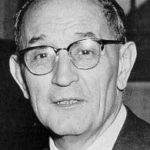
Pastor Martin Niemoller
When Hitler heard that there might be a church division because some pastors objected to his agenda, he summoned German church leaders to his office to rebuke them for inadequately supporting his programs. Hitler began by reproaching his guests and how he was misunderstood. He told them he wanted Peace between Church and State and they were obstructing him and sabotaging his efforts to achieve it.
When the time came for those who were in the meeting to respond, Pastor Niemoller (pictured left), explained that he was concerned only for the welfare of the church and of the German people. Hitler responded angrily by saying “You confine yourself to the Church. I’ll take care of the German people.” Niemoller replied, “
You said that ‘I will take care of the German people.’ But we too, as Christians and churchmen, have a responsibility toward the German people. That responsibility was entrusted to us by God, and neither you nor anyone in this world has the power to take it from us.
Hitler listened in silence but that same evening, his Gestapo men raided Niemoller’s rectory for incriminating evidence. A few days later a bomb exploded in his church. During the months and years following, he was closely watched by secret police. On June 27 1937, Niemoller preached his last sermon in the Third Reich knowing that he was about to be arrested:
We have no more thought of using our own powers to escape the arm of authorities than had the Apostles of old. No more are we ready to keep silent at man’s behest when God commands us to speak. For it is, and must remain, the case that we must obey God rather than man.”
Niemoller said, “Christianity in Germany bears a greater responsibility before God than the National Socialist, the SS, and the Gestapo.” He was soon arrested and placed in solitary confinement. According to Dr. Lutzer,
The interrogation from police was easier for Niemoller to bear than some of the criticism he received from his colleagues for his words to Hitler, clearly the majority of the pastors had adopted an attitude of safety first. Niemoller declared that he would rather burn his church to the ground, than preach the Nazi trinity of race, blood, and soil.
The great majority of Christians supported the Führer, even when he led them into war. With its idealistic view of the state as being always God’s agent, the Confessing Church was slow to recognize how perverted the political order had become. I think this sounds familiar!
But we should not overlook the hundreds of pastors who stood courageously and preached the gospel even in the prisons and concentration camps. In many ways, the Confessing Church reluctantly resisted the Nazi regime. Its goal was to preserve the church, not to topple the Hitler regime.
Nevertheless, if the church in Germany had truly acted like the Church of Jesus Christ, if Christians had prayed fervently, understood and lived out a Biblical worldview and preached the full gospel of Jesus Christ, Germany would never have accepted the Nazi regime. But as Dr. Lutzer again noted,
Hitler’s political machine swallowed the whole church because the church had lost its Biblical mission. Thus the state not only interfered with religious practices but controlled them. A powerful state has always been a threat to the existence and influence of the church. Whether the threat be Nazism, Communism, or humanism, a state that is hostile to religion will always attempt to push the church toward forced irrelevancy. Even without a dictatorship a state can marginalize the influence of the church.
As the state expands its power, it can initiate laws that limit the church’s freedoms. The Church wasn’t free to exercise its influence and practice religion without interference from the state. This kind of separation is what the church in Germany so desperately needed.
Early in 1934, Martin Niemoller at his church in the Berlin suburb of Dahlem had prophetically declared God’s purpose in the trials that faced the German church. He said that:
We have all of us –the whole Church and the whole community—we’ve been thrown into the Tempter’s sieve, and he is shaking and the wind is blowing, and it must now become manifest whether we are wheat or chaff! Verily, a time of sifting has come upon us, and even the most indolent and peaceful person among us must see that the calm of a meditative Christianity is at an end…It is now springtime for the hopeful and expectant Christian church—it is testing time, and God is giving Satan a free hand, so he may shake us up and so that it may be seen what manner of men we are!.. Satan swings his sieve and Christianity is thrown hither and thither; and he who is not ready to suffer, he who called himself a Christian only because he thereby hoped to gain something good for his race and his nation is blown away by the wind of time.
Niemoller has a word for us who live in the Western nations. Of course he was thinking of his own church and the people of Germany when he spoke these words, but they are for us as well……Though we can often see the judgment that God inflicts upon His church, the purification is hidden from us. The chaff is more easily seen than the wheat, which is more precious to Him.”
In the Western world most especially in the U.K. and U.S., it is increasingly becoming more difficult to practice your religion in the realm that belongs to the state. Religion, we are told, should be practiced privately; the state must be “cleansed” from every vestige of religious influence. Hate crime and other legislations are increasingly being used to criminalize Christians who hold a Biblical worldview on political, social or other moral issues.
Yet this study of Germany according to Lutzer “will force us to wrestle with the same sobering questions the German Christians faced 70 years ago.”There is no doubt that the silence and inaction by a majority of Christians during Holocaust still haunts and will continue to haunt the Christian Churches for a very, very long time.
Source of Image The German Confessing Church.
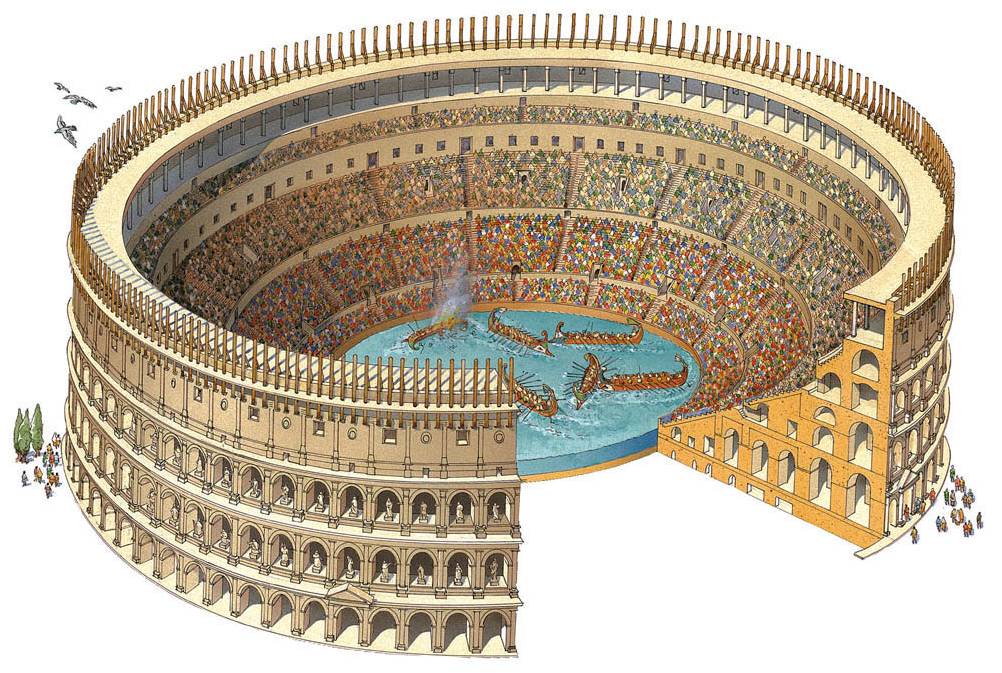 In the fifth century there was a little monk named Telemachus from the Roman province of Asia which is modern day Turkey. He lived alone as a spiritual hermit in the desert seeking God. One day he became convinced that he was selfish rather than selfless, and was led by an inner voice to head to Rome without knowing why. He arrived when the Romans were celebrating a military victory over the Goths.
In the fifth century there was a little monk named Telemachus from the Roman province of Asia which is modern day Turkey. He lived alone as a spiritual hermit in the desert seeking God. One day he became convinced that he was selfish rather than selfless, and was led by an inner voice to head to Rome without knowing why. He arrived when the Romans were celebrating a military victory over the Goths.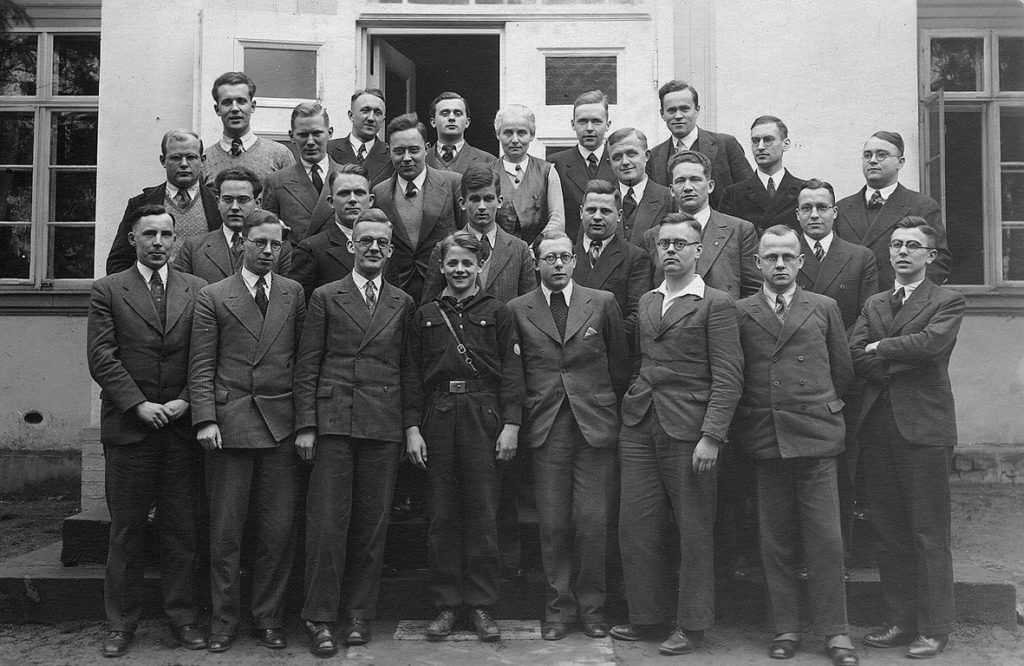

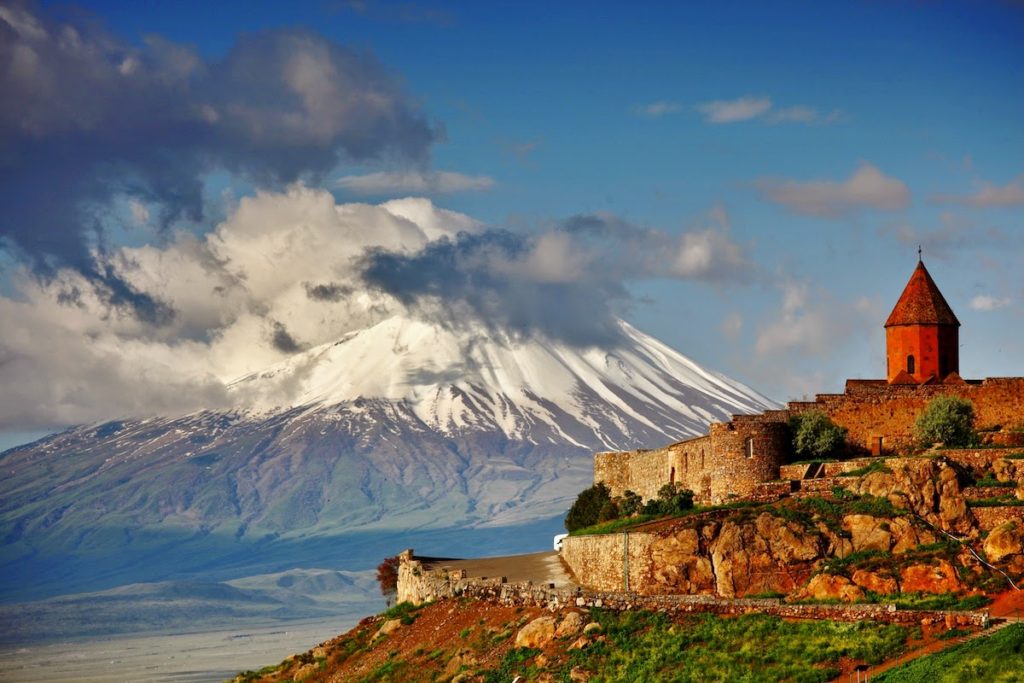



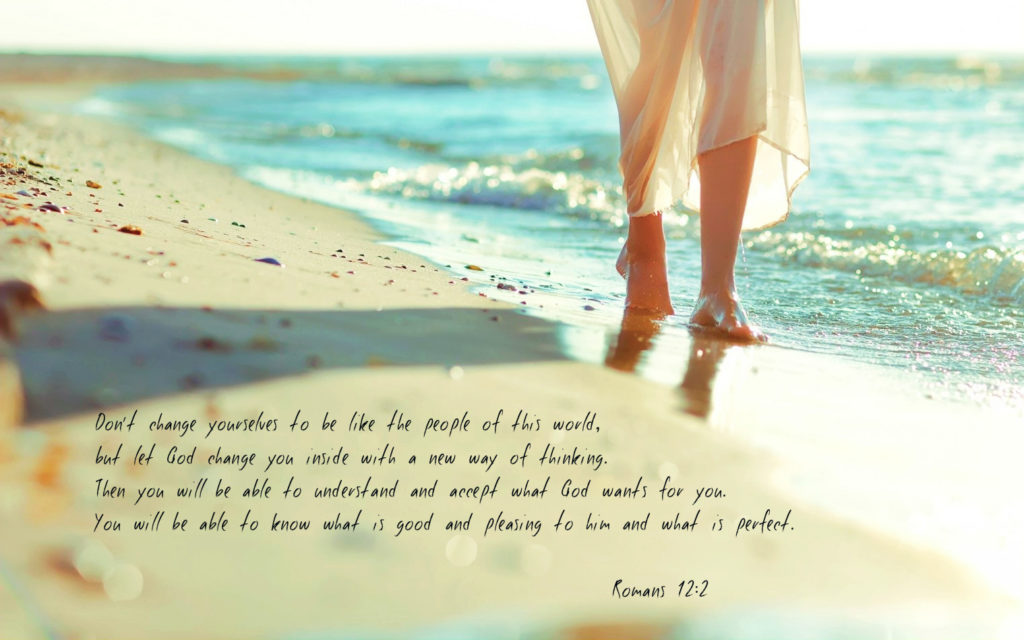 When I was nine years old, my father told me he wanted to become a woman. I know I speak for others who have undergone similarly tragic childhoods when I say that I pray the Supreme Court will seriously consider the six amicus briefs submitted by the children of LGBT parents.
When I was nine years old, my father told me he wanted to become a woman. I know I speak for others who have undergone similarly tragic childhoods when I say that I pray the Supreme Court will seriously consider the six amicus briefs submitted by the children of LGBT parents.